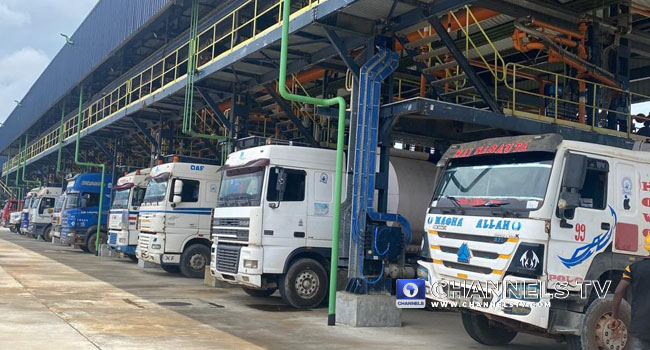The Petroleum Products Retail Outlets Owners Association of Nigeria (PETROAN) has voiced its strong endorsement of the Federal Executive Council’s recent decision to continue the Naira-for-Crude policy. PETROAN believes this policy shift has the potential to be a transformative moment for Nigeria’s energy sector, promising greater stability and affordability.
Speaking to members of the press in Abuja, PETROAN’s National Public Relations Officer, Joseph Obele, conveyed the association’s optimism that the continued implementation of the Naira-for-Crude policy, coupled with the recent decrease in global crude oil prices, will ultimately lead to more affordable prices for petroleum products for Nigerian consumers across the nation.
“We want to sincerely commend the Federal Executive Council for its decision to fully implement the Naira-for-Crude policy,” stated Mr. Obele. He emphasized the strategic importance of this initiative, saying, “This is a strategic move aimed at reducing our dependence on foreign exchange, enhancing local refining capacity, and ultimately stabilizing the downstream sector of our petroleum industry.”
The Naira-for-Crude policy centers on enabling domestic refineries, such as the Dangote Refinery and other local refining facilities, to purchase crude oil using the Nigerian Naira instead of the traditionally required United States dollar. PETROAN argues that this fundamental change will not only alleviate the persistent pressure on Nigeria’s foreign exchange market but will also provide a significant incentive for increased investment in the country’s crucial refining infrastructure, thereby bolstering Nigeria’s overall energy security and self-sufficiency.
Mr. Obele specifically lauded the leadership of President Bola Tinubu and other key stakeholders who were instrumental in driving this policy forward. He recognized the contributions of the Minister of State for Petroleum Resources (Oil), Senator Heineken Lokpobiri; the Minister of Finance and Coordinating Minister of the Economy, Wale Edun; the Chief Executive of the Nigerian Midstream and Downstream Petroleum Regulatory Authority (NMDPRA), Engineer Farouk Ahmed; 1 and the Chief Executive Officer of the Nigerian Upstream Petroleum Regulatory Commission (NUPRC), Gbenga Komolafe, for their commitment to reforms that prioritize the needs and well-being of Nigerian consumers.
“This is a policy that directly supports local production and effectively shields our national economy from the inherent volatility of the global oil market,” Mr. Obele explained. He further elaborated on the anticipated benefits, stating, “When our domestic refineries are able to purchase crude oil in Naira and process it locally within Nigeria, the overall cost of production is significantly reduced, and that crucial benefit can and should be directly passed on to the end users, the Nigerian people.”
Mr. Obele also drew attention to the prevailing global economic context, noting that the current decline in international crude oil prices presents a favorable opportunity for local price adjustments. He attributed this global price drop to a combination of factors, including slowing economic demand in major global economies and increased crude oil output from oil-producing nations outside of the Organization of the Petroleum Exporting Countries (OPEC).
“The global oil market is currently experiencing a noticeable supply glut,” Mr. Obele pointed out. “Demand for crude oil is weakening due to economic slowdowns in several key global economies, and simultaneously, non-OPEC countries are actively increasing their oil production levels. These converging factors are exerting downward pressure, driving international crude oil prices lower.”
He further connected the global price decline to past international policy shifts, adding, “President Trump’s policy of reciprocal tariffs implemented in the past contributed to a broader global economic slowdown, which in turn has had a deflationary impact on overall oil prices in the international market.”
Despite the inherent fluctuations and uncertainties of the global oil market, PETROAN firmly believes that Nigeria now has a relatively unique and opportune moment to insulate its domestic economy from the often-turbulent effects of external economic shocks through the strategic implementation and continuation of the Naira-for-Crude policy.




